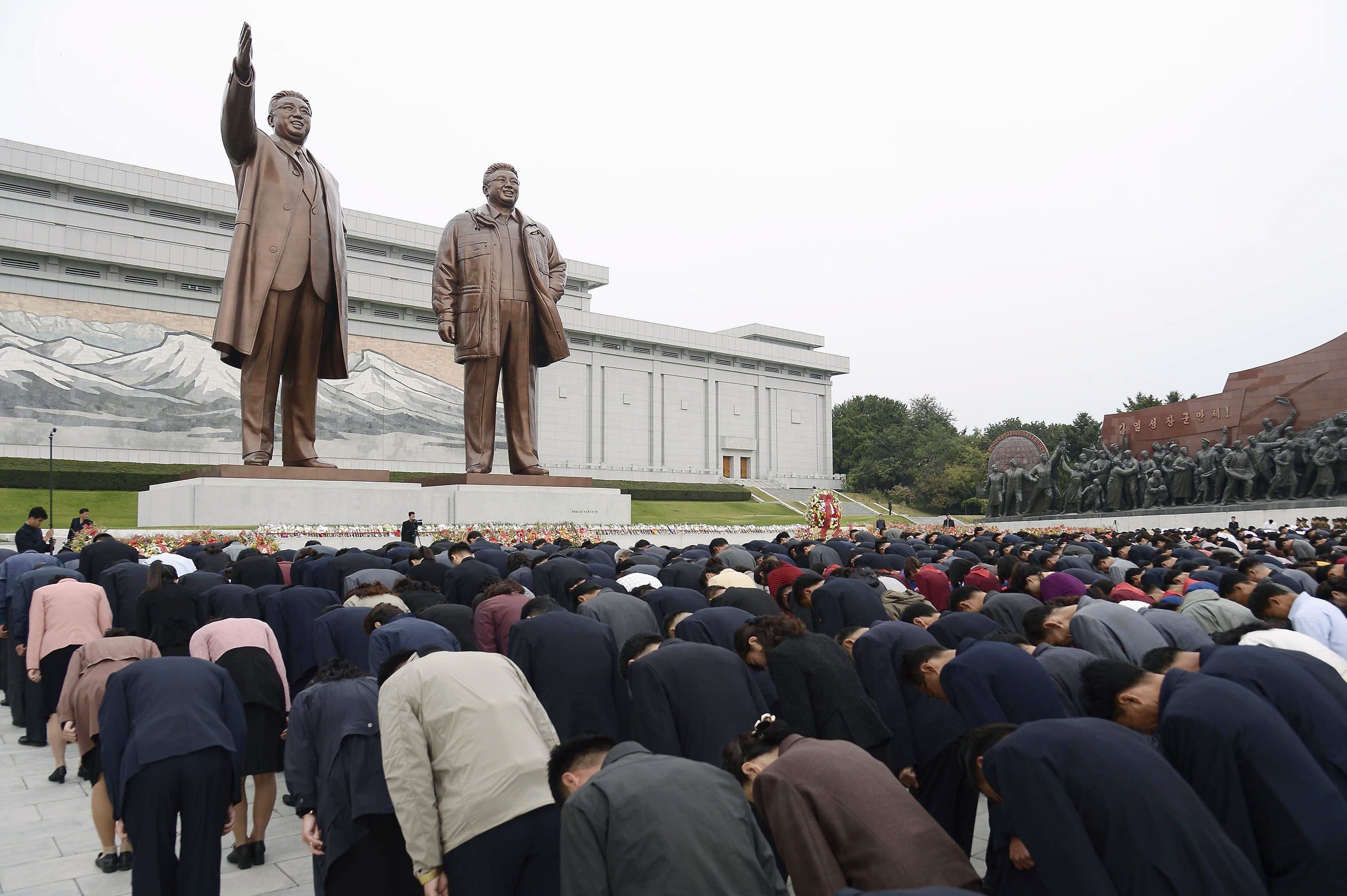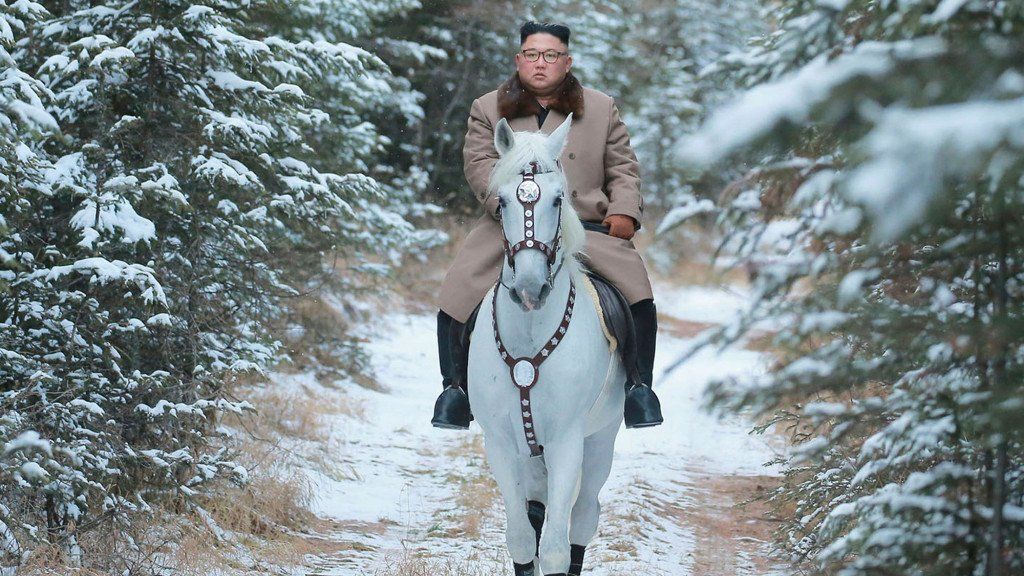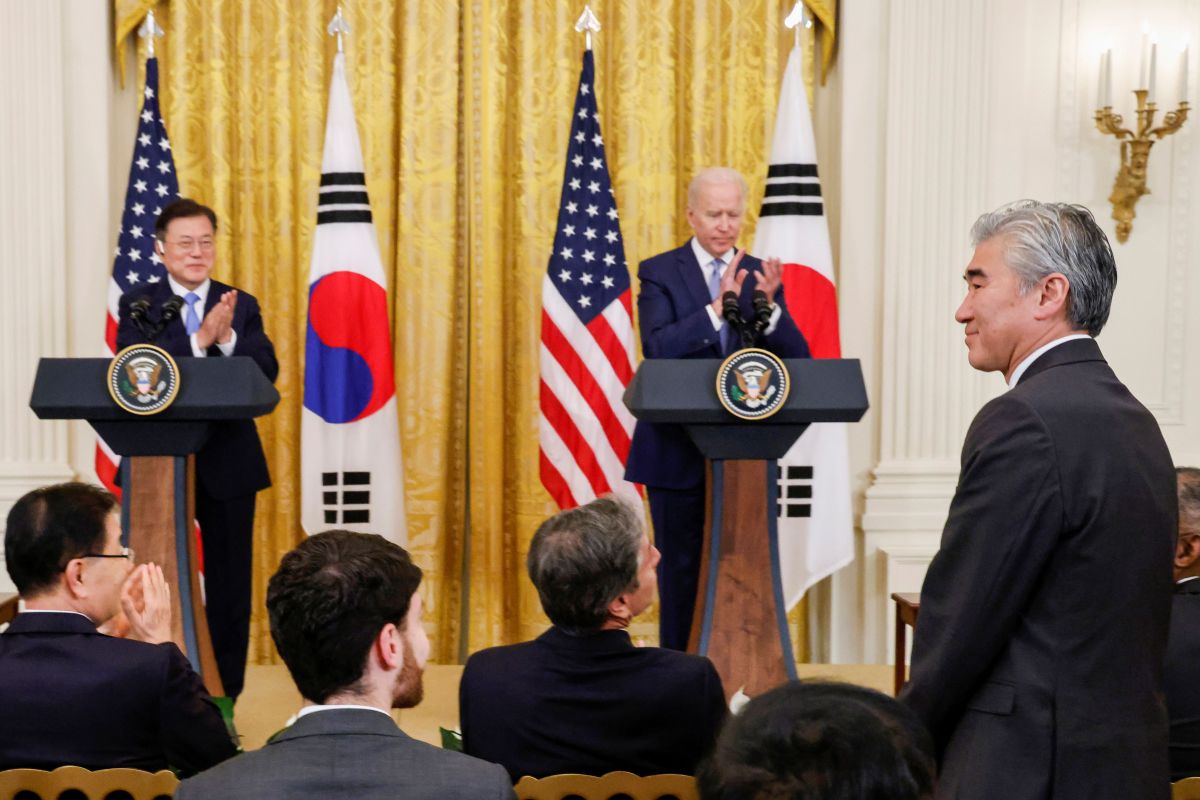North Korea's Foreign Policy Towards South Korea and the U.S.
In recent months, North Korea has intensified missile tests, while signalling the possibility of resuming talks with South Korea and the U.S. These signals of openness to dialogue indicate that North Korea wants the next South Korean president, who will be elected in March 2022, to be favourable to the inter-Korean dialogue. In turn, the demonstration of military capabilities serves to strengthen North Korea’s position ahead of possible negotiations with the U.S. to convince it to ease sanctions. The difficult domestic situation will not persuade North Korea to take a more conciliatory stance in the talks, however.
 Fot. Vivian Lo/Zuma Press/Forum
Fot. Vivian Lo/Zuma Press/Forum
In September and October, North Korea conducted missile tests, including a hypersonic missile, as well as cruise and ballistic missiles launched from a train and a submarine (SLBM). In addition, in October the North organised the exhibition “Self-Defence 2021”, during which it presented a missile arsenal. In recent weeks, the North Korean authorities have also issued several announcements regarding relations with South Korea and the U.S. For example, during the September parliamentary session, Chairman Kim Jong Un maintained his position from the January party congress that North Korea intends to “respond to power with power and goodwill for goodwill” in relations with the U.S. Kim said the Biden administration’s “hostile policy” towards North Korea has remained the main obstacle to resuming the dialogue. He accused South Korea of escalating tensions by developing its military arsenal and conducting joint drills with the U.S. At the same time, Kim stated his openness to resume the inter-Korean talks.
These actions serve as the implementation of the basic assumptions of North Korea’s foreign policy. The development of the North’s missile and nuclear potential is expected to strengthen both deterrence and its negotiating position in talks with South Korea and the U.S., aiming for an easing of sanctions, among other things. At the same time, the North’s recent moves show that it has adapted its foreign policy to new conditions: the difficult internal situation, the upcoming presidential elections in South Korea, and the policy of the new U.S. administration.
Internal Context
The borders of North Korea have been closed since January 2020 due to restrictions introduced in response to the COVID-19 pandemic. The restrictions have forced most diplomats (including all European) and humanitarian workers to leave the country. This drastically reduced the already limited possibilities of verifying reports on the internal situation in North Korea. However, the pandemic restrictions have undoubtedly exacerbated the existing problems of the North Korean economy resulting from ineffective management, international sanctions, and natural disasters. North Korean authorities admit that the economic situation, especially the food situation, is difficult, but do not specify the scale of the problems. At the same time, they maintain that there are no cases of SARS-CoV-2 infection in the country. The closure of the country limits the possibility of importing basic goods, including medicines, which, according to South Korean intelligence (NIS) affects the spread of diseases such as typhoid. Although the food problems are a key challenge for North Korean authorities, the NIS believes the situation is not as bad as the services suggested in the spring. This may be due to the partial resumption of trade with China and smuggling, which is probably North Korea’s main channel for goods.
Approach to South Korea
North Korea’s policy towards its southern neighbour is implemented in the context of the arms race on the Korean Peninsula and the upcoming presidential elections in South Korea. The North justifies the development of its military potential by the South’s expansion of military capabilities. In recent months, South Korea launched an SLBM and its first homegrown space rocket, confirming its efforts to increase autonomy in the security dimension. On the other hand, the presidential elections in South Korea scheduled for March 2022 prompt North Korea to limit its confrontational attitude. The North wants the next South Korean president to continue the conciliatory course of Moon Jae-in in inter-Korean relations. Therefore, it is in North Korea’s interest for Lee Jae-myung to be elected as he comes from the same liberal party as Moon, and not conservative Yoon Seok-youl, who opposes dialogue with North Korea.
To keep South Korea’s interest in maintaining the inter-Korean dialogue, North Korea is alternately tightening up and softening its policy towards it. The North does this by closing and opening channels of inter-Korean communication and maintaining an ambiguous position on the South Korean offers of dialogue. This was evidenced by North Korean reactions to Moon’s call for a declaration to end the Korean War. North Korea initially dismissed the idea as worthless, then softened its position by stressing that the inter-Korean dialogue and negotiations on an end-of-war declaration may begin if South Korea abandons its “hostile policy”. It uses this tactic to get Moon to consider its expectations, such as persuading the U.S. to ease the sanctions.
Relations with the U.S.
North Korea’s dialogue with the U.S. has been deadlocked since the Hanoi summit in 2019. The stalemate has not yet been broken by the Biden administration, whose policy is limited to signalling “readiness to talk without preconditions”. This attitude is criticised by North Korea, which wants the U.S. to resume talks along its line of expectations, including the easing of sanctions. The missile tests showing the development of the North Korean arsenal are intended to persuade the U.S. to begin the negotiations as soon as possible. Despite resuming missile testing, North Korea has been abiding by the 2018 self-imposed moratorium on ICBM and nuclear testing. This demonstrates North Korea’s reluctance to escalate tensions in a way that would risk further sanctions or the U.S. withdrawing from the talks.
North Korea is also trying to take advantage of the contradictions in the U.S.-South Korea alliance. Recognising the differences in the approach of the allies to the end-of-war declaration (South Korea supports it, the U.S. remains cautious), North Korea signals its readiness to discuss this issue. The rivalry between the U.S. and China, deepening the divergences in these countries’ approach to the situation on the Korean Peninsula, is also beneficial to North Korea. China does not fully comply with the sanctions and, with Russia’s support, works to ease them through the UN Security Council. Another element of the pressure exerted on the U.S. is the instrumental reference to the conclusions of UN reports indicating the negative impact of sanctions on the humanitarian situation in North Korea.
Conclusions and Perspectives
Despite the difficult internal situation, North Korea will continue to develop its military potential in the coming months. Maintaining the impasse in the dialogue with the U.S. may induce North Korea to demonstrate and test elements of other types of weapons, including nuclear submarines, solid fuel ICBMs, and tactical nuclear weapons, as mentioned by Kim Jong Un in January. The history of negotiations with North Korea suggests that internal problems will not persuade the North to soften its position in possible talks with the U.S. In addition, North Korea can in the end count on economic support from China, which wants to keep North Korea as a buffer state separating it from South Korea.
Until the South Korean presidential elections, North Korea will maintain its declarative openness to the inter-Korean dialogue. This is intended to increase the chances of the liberal candidate’s victory in the elections. North Korea may see an opportunity in the end of the president’s term when Moon Jae-in will probably seek to resume talks, including offering humanitarian and medical aid. In addition, North Korea will act to weaken the cohesion of the U.S.-South Korea alliance by highlighting the differences in the approach of these countries to North Korea.
The Chinese involvement may contribute to the resumption of the inter-Korean dialogue and North Korea’s talks with the U.S. China may use the upcoming Winter Olympics in Beijing as an occasion to encourage the parties to ease tensions and initiate talks, following the example of the 2018 Winter Olympics in Pyeongchang. This may be hampered by the fact that North Korea has been suspended from the Beijing Winter Olympics by the International Olympic Committee as punishment for skipping the Tokyo Games this year. Another obstacle to the resumption of talks may be further tensions in China-U.S. relations, especially as the Biden administration is considering a diplomatic boycott of the Beijing Games.
It is in the interests of the EU and its Member States to remain flexible with North Korea. In addition to implementing sanctions, justified by the North’s repeated violations of UNSC resolutions, EU countries should maintain contacts with North Korean diplomats. The renewal of EU-North Korean “1.5 track” diplomacy with the gradual inclusion of U.S. and South Korean participants could revive diplomatic and expert contacts between the U.S. and both Koreas. As North Korea has been receiving aid from WHO and UNICEF in recent weeks, the EU should also monitor the possibility of resuming humanitarian assistance to the North.





